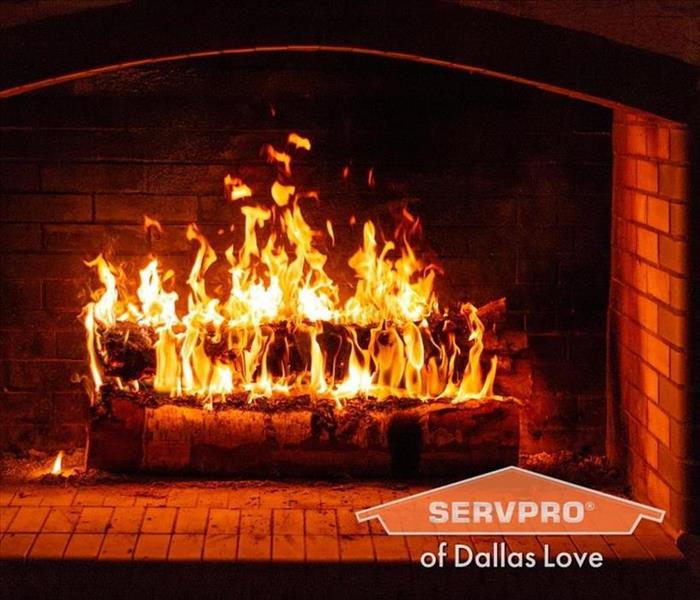Heating Safety Tips Everyone Should Know
4/5/2022 (Permalink)
Faulty heating equipment is the second leading cause of home fires. Unfortunately, during winter, residential homes record the most cases of deaths. In most cases, using heating equipment safely will help keep you warm, protect your home, and prevent accidents and fires. Therefore, everyone should know the best heating safety tips to keep everyone safe.
Fires are rarely the result of an accident. They typically result from defective equipment or negligence. Of course, some fires result from natural calamities like lightning strikes.
What can you do to keep yourself warm without risking your health or increasing the risk of a fire? Here are tips for heating your home safely.
General Heating Safety Tips
While electric heating is safer, cleaner, and more efficient than gas heating, it still carries risks. Electric heaters are high-wattage equipment with the potential of igniting nearby combustible materials.
For example, a hot radiator beside curtains, paper, clothing, or other flammable fabric could get so hot that the material goes up in flames.
Heating safety tips for electric and portable heating appliances:
- Never leave an electrical heater switched on and unattended. Children should not be left alone with heaters or allowed to play with the plug and cord.
- Do not use power strips or extension cords when heating the home with a portable electric heater.
- Place flammable objects at least three feet away from heating appliances.
- Ensure heating safety by placing the heater on the floor to reduce the risk of falling or tipping over, which could start a fire. Place the heater on a flat, even, and uncovered floor.
- Only plug one heating appliance like a portable radiator or space heater into an electrical outlet at a time. This prevents overloading the circuits or creating extra resistance that builds up heat, causing fires.
- Place the heater away from water to avoid electric shock. Electricity and water are never a good combination.
Heating safety tips for using heating appliances powered by combustible materials:
- If you smell gas or suspect a gas leakage in your home, do not light any appliance or switch on a light. Instead, leave your home immediately and call your local fire department or gas company.
- Make sure that your fireplace has a sturdy screen to stop sparks flying into the room.
- Fire ash should always be cool before putting it into any kind of covered metal container.
- Never put hot ash into a plastic container.
- Keep fireplace ash containers at a safe distance away from your home.
- Always store flammable liquids in appropriate storage containers and a safe, secure place outside your home.
- Never fill a heater with kerosene or oil in your house. A fuel spill can be dangerous.
- Always keep rooms ventilated to avoid a buildup of carbon monoxide. Carbon monoxide can cause severe respiratory health concerns. It’s also a good idea to install carbon monoxide detectors if you heat your home with a gas furnace.
Call SERVPRO of Dallas Love
Call SERVPRO at (214) 272-7600 to learn about our comprehensive Dallas fire damage restoration services. Our team of experts is trained to clean up and restore fire-damaged properties.





 24/7 Emergency Service
24/7 Emergency Service
